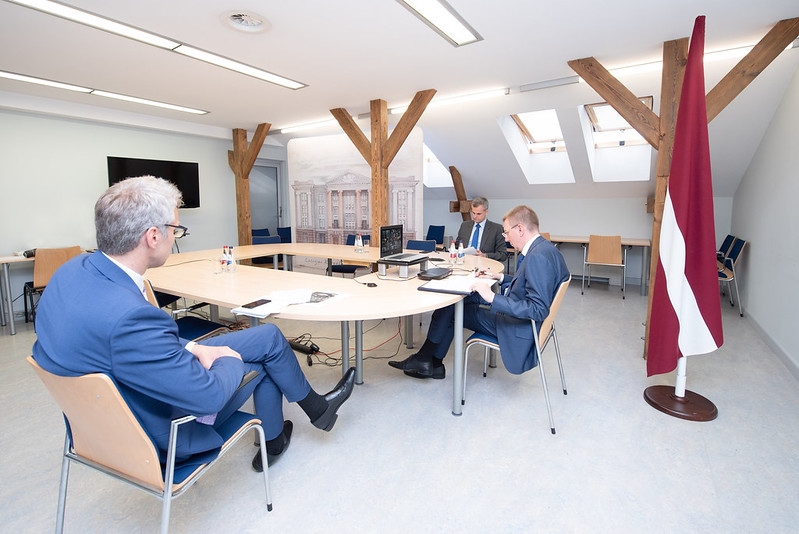On 10 June 2020, Foreign Minister Edgars Rinkēvičs took part in a special OECD Roundtable Ministerial Meeting to discuss policy responses to the COVID-19 pandemic and its effects on the economies of member states, exploring initial conclusions drawn and the responses needed at both national and international levels.
OECD Secretary-General Angel Gurría introduced the discussion by saying that we are now facing the biggest crisis in the history of the OECD, and how governments act today will shape the post-Covid world for years to come. This, he said, is true not only domestically, where the right policies can foster a resilient, inclusive and sustainable recovery, but also in terms of how countries co-operate to tackle global challenges together” At any rate, the first condition is getting past the pandemic.
Edgars Rinkēvičs pointed out that Latvia along with other countries has taken measures to support economic activity and to protect the vulnerable in society who are most exposed and will suffer the most from the effects of the COVID-19 crisis. There are still quite a few unknown factors at play that can also influence the process of recovery, and yet smart investments in human capital, the business environment, and infrastructure, he said, is a prerequisite for building an economy that is greener, more inclusive and generates greater productivity. The crisis has certainly stimulated and speeded digital transformation. Latvia is proud to be one of the first countries in the world to introduce the Stop-Covid app and the e-Saeima (e-Parliament) platform.
The Latvian Foreign Minister placed a special emphasis on the significance of multilateral cooperation, for example, in coordination on the easing of restrictions for travel, on making sure that trade restrictions are lifted, and in fighting disinformation, to name a few.
The OECD’s Economic Outlook was just published and there is a new forecast on Latvia’s economic growth. It estimates for 2020 an 8.1 to 10.2 percent decrease in GDP while at the same time predicting an increase of 2 to 6.3 percent in 2021. Find the report here https://www.oecd.org/economic-outlook/
For the latest OECD analysis and recommendations to governments in the context of the COVID-19 crisis, consult the following site: https://www.oecd.org/coronavirus/en/





